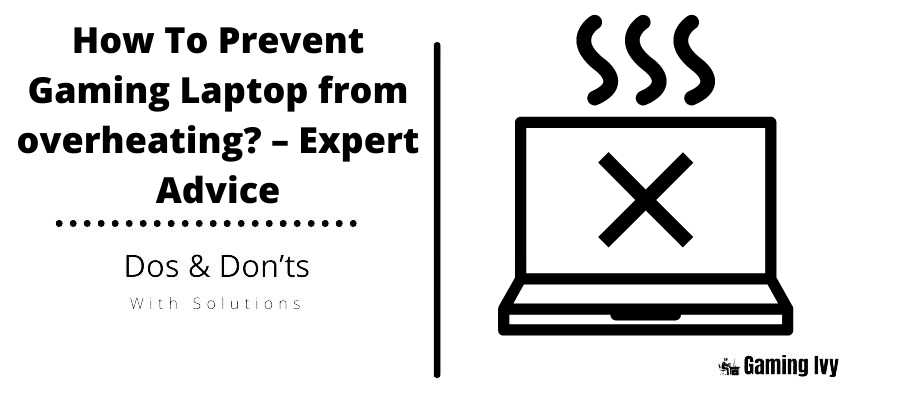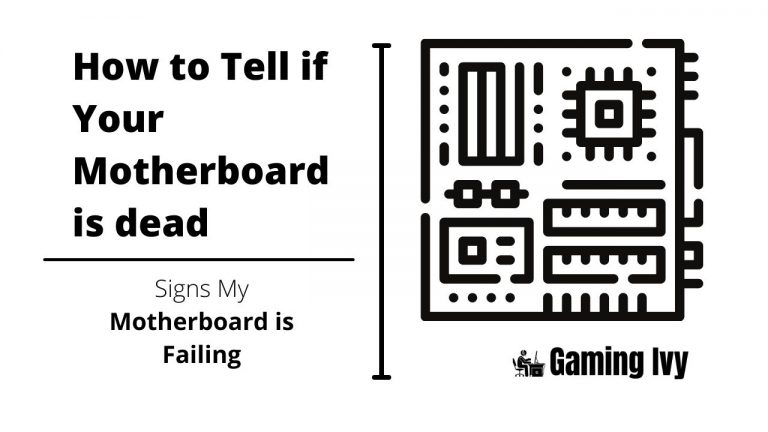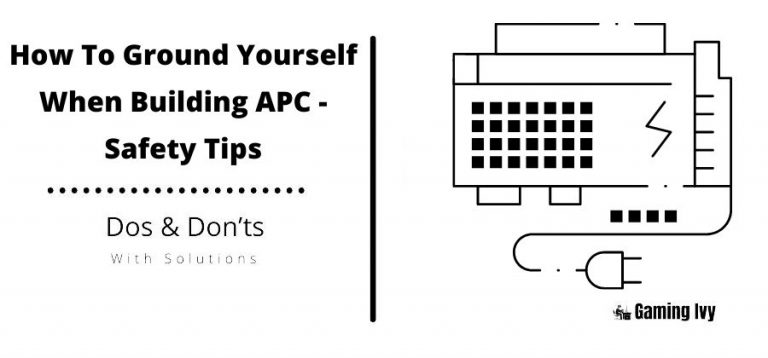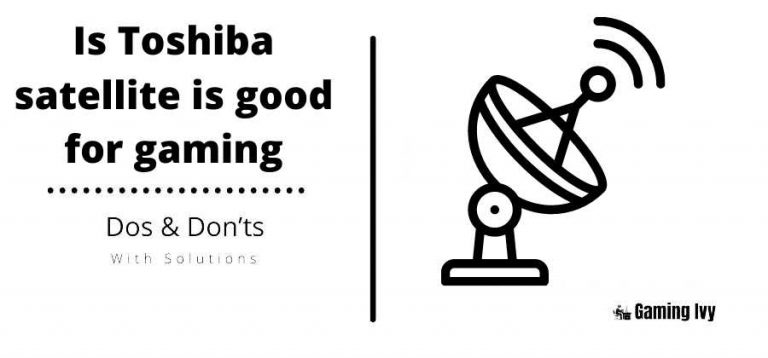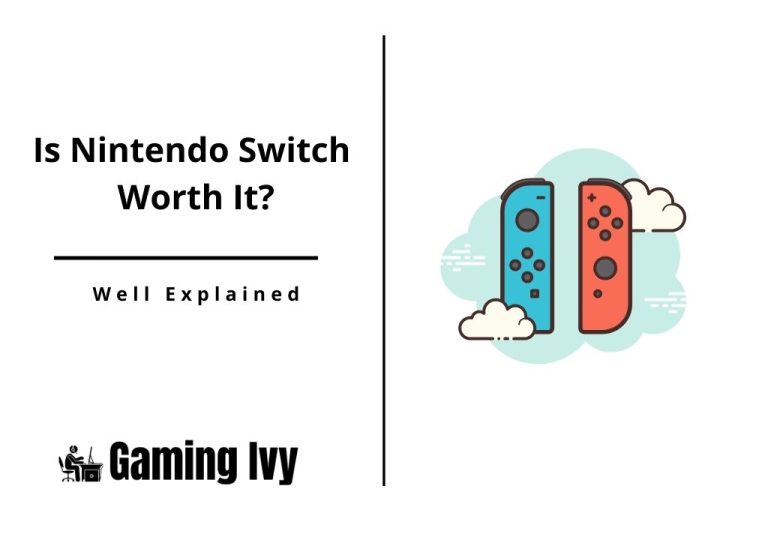How To Prevent Gaming Laptop from overheating? Expert Advice
Although many excellent gaming laptops are available nowadays, some customers have reported that their laptop overheats while playing games. Do many people ask about how to prevent gaming laptops from overheating? This can be a significant issue, resulting in decreased performance and hardware damage in some circumstances, but there is a solution.
Laptop overheating is a significant issue that frequently arises when performing demanding tasks on your laptop, such as playing games. Concerning overheating, users have reported the following cases:
When playing games, the laptop overheats and shuts off. When your computer reaches the overheating limit, this problem happens.
Make sure your laptop is dust-free or use a cooling pad to solve the problem.
-
Table of Contents
Overheating of a new laptop
If your brand-new laptop is overheating, it’s possibly because your settings are to blame.
Check your power settings to see if it fixes the issue.
-
Overheating laptop when gaming and charging
This is another issue that might arise with your laptop, so make sure to attempt all of our solutions if you have this problem.
-
The laptop is constantly overheating and crashing.
Many people overclock their electronics, but this can lead to various problems, including overheating.
Turn off overclocking or underclock your hardware to resolve the issue and see if it helps.
How To Prevent Gaming Laptop from Overheating?
-
Connect your laptop to the charger to see if it helps.
Many people complained about their laptops overheating while playing games. According to experts, these troubles can arise because some games require a lot of hardware power, and if your computer doesn’t have enough energy, you’ll have problems.
Users suggest that you plug your charger into the laptop during gaming sessions to solve the problem. This will offer sufficient power for your computer, ensuring that it does not overheat.
This is only a temporary fix, but it may be helpful until you find a permanent solution.
-
Instead of using specialized graphics, try employing integrated graphics.
Dedicated and integrated graphics are found on all gaming laptops, and if your laptop is overheating, your faithful pictures probably are to blame. Dedicated graphics consume more power and generate more heat, which could cause your laptop to overheat if you’re playing a hardware-intensive game.
People propose using integrated graphics as a temporary workaround to solve the problem. Because integrated graphics do not consume as much power as specialized graphics, they do not generate much heat. However, because integrated graphics cannot match the capability of a specialized graphics processor, you may not get the most outstanding results in some games.
Check your graphics control panel software, such as Nvidia Control Panel or Catalyst Control Center to set your integrated graphics as the default graphics processor.
-
Try using a cooling pad.
If your laptop overheats when playing games, it could be due to a lack of cooling. However, you may efficiently resolve this issue by purchasing a cooling pad. These devices are essential, as they will provide additional cooling for your laptop and assist you in lowering its temperature.
Place your laptop on a clean, flat surface if you don’t want to spend the money on a cooling pad. Placing your laptop on your bed or in your lap is a terrible idea since its fans can become clogged with dust and debris, causing the temperature of your laptop to rise.
-
Replace your charger
According to experts, if you’re having problems with overheating while gaming on your laptop, it could be due to the charger. Several people stated that their charger was defective, which resulted in the overheating problem.
Check to see whether the problem persists after you change your charger.
-
Underclock your graphics card
To improve performance, many people overclock their graphics cards. On the other hand, they are overclocking puts more strain on your system, leading it to emit more heat. Overclocking can eventually cause your laptop to overheat during gaming sessions.
If your hardware is overclocked, it may be causing the problem, so disable all overclocking options and restore default settings. If the problem persists even with the default settings, you might want to consider underclocking your device.
To reduce energy usage and heat output, you must lower the settings on your device to underclock it. Remember that underclocking your device will result in lower performance, but it will keep your laptop from overheating.
-
Try lifting your laptop.
According to experts, your laptop can overheat if you don’t have enough airflow. Your laptop draws air from your room and uses it to cool its internal components. However, if you impede the airflow, problems with your laptop may arise.
Lifting your laptop while using it is one solution to this problem. Prop your laptop up against something while using it on a flat surface to allow more air to circulate. As long as the fans aren’t blocked, nearly anything can be used to elevate your laptop.
Please raise your laptop 1 to 1.5 inches from the ground for the best results.
This is a simple solution, but it appears to work for some users, so it’s worth a shot.
-
Try cleaning your laptop.
If you’re still having problems with your laptop overheating, it’s a good idea to clean it out. Over time, the dust on your fans will accumulate, causing your temperature to rise. So, it is recommended that you vacuum clean your laptop.
You may perform this by opening the bottom of your laptop and cleaning the fans and heatsinks using compressed air. Remember that opening your laptop voids your warranty, so if your computer is still under contract, it’s probably best to take it to an authorized repair center.
You can use compressed air to clean the fans without opening the laptop if you don’t want to open it. This should get rid of at least some of the dust on your laptop. Check to see whether the problem persists after that.
Overclocking or dust in your device can create laptop overheating issues. However, these issues are caused by overclocking or dust in your device in most situations. However, we hope that you can solve the problem after applying one of our solutions.
Conclusion
Gaming laptops are known for getting heated. HOWEVER, when CPU and GPU temperatures exceed 80°C, however, there may be an underlying software or hardware issue.
Solving each of the previously mentioned issues should allow your laptop to run cooler, allowing you to resume playing games. When it comes to new laptops, having your laptop tested by the authorized repair centers during the warranty period is a good idea.
If you learned a new thing today about Preventing a gaming laptop from overheating, please don’t forget to share this article with others. If you have any questions or suggestions for us, please feel free to write them in the comment section down below.
Thanks

